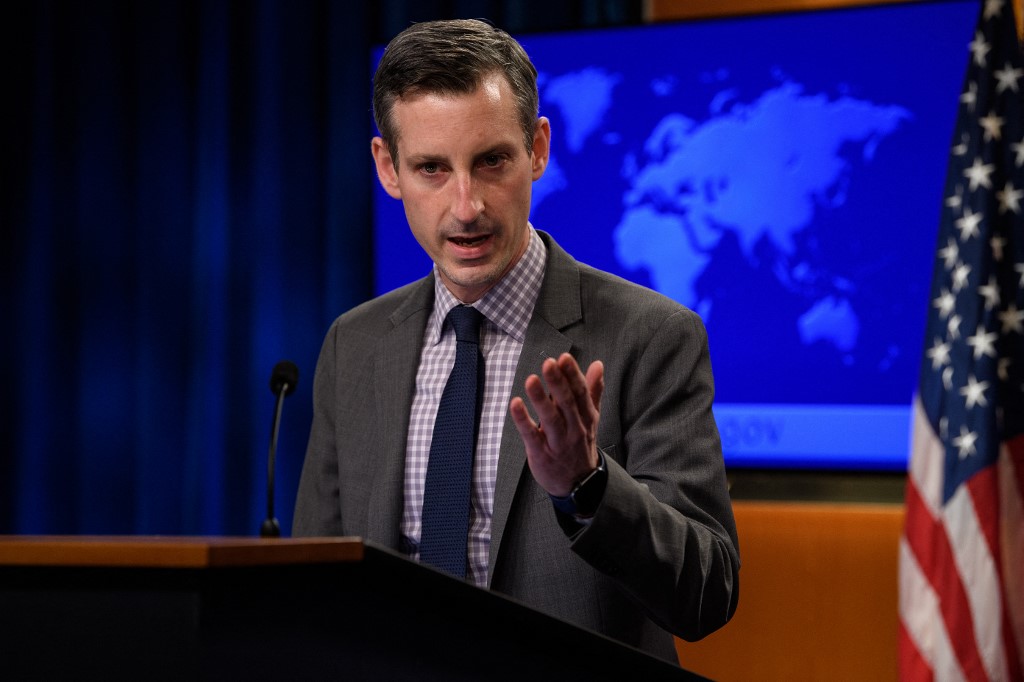The US State Department has expressed regret about an access ban imposed by Turkey’s broadcasting regulator on the Turkish editions of international news websites Voice of America and Deutsche Welle, describing the move as yet another step toward tightening media control in the country.
Access to the Turkish editions of VOA and DW was blocked last Thursday evening based on a recommendation from the country’s media watchdog, the Radio and Television Supreme Council (RTÜK).
When readers went to access these websites, they saw a notice saying that access to the websites had been blocked by the decision of an Ankara court.
The two media outlets had refused to comply with an order from RTÜK in February to obtain broadcasting licenses, which they said would amount to censorship.
“We regret the Turkish Radio and Television Supreme Council’s @rtukkurumsal decision to block access to the websites of @VOATurkce& @dwnews further expanding government control over freedom of expression and media freedom in Turkey. Free press is essential to a robust democracy,” US State Department Spokesperson Ned Price tweeted on Wednesday.
We regret the Turkish Radio and Television Supreme Council's @rtukkurumsal decision to block access to the websites of @VOATurkce & @dwnews further expanding government control over freedom of expression and media freedom in Turkey. Free press is essential to a robust democracy.
— Ned Price (@StateDeptSpox) July 6, 2022
The new media regulation applies to foreign providers of Turkish audio and video content.
Last Friday the two news websites were inaccessible in Turkey without the use of VPN. Both shared instructions on their social media accounts about using VPN to access their content.
The move by RTÜK has been described by media outlets as an attempt at censorship and at expansion of the Turkish government’s control over domestic media to foreign outlets, which are the only source of free and independent journalism for some people in Turkey, where the majority of the media is controlled by the government.
Deutsche Welle and VOA challenged RTÜK’s move at the time and announced that they would appeal its decision and take legal action in court.
In 2019 Turkey revised its media regulations to allow RTÜK to supervise online broadcasts. Since the new regulations went into effect, various streaming platforms including Netflix and Amazon Prime have applied for and received licenses.
RTÜK is a controversial agency that is accused of contributing to increasing censorship in the country by imposing punitive and disproportionate sanctions on independent television and radio stations critical of the Turkish government.
According to Reporters Without Borders (RSF), 90 percent of the national media in Turkey, which was ranked 149th among 180 countries in the RSF’s 2022 World Press Freedom Index, is owned by pro-government businessmen and toe the official line.


